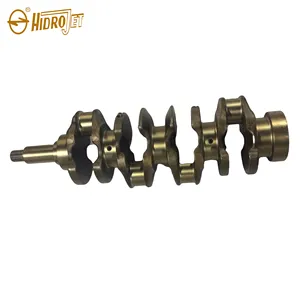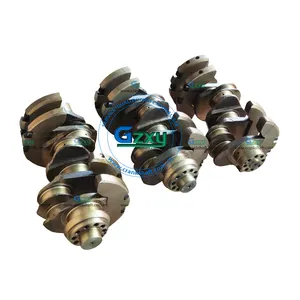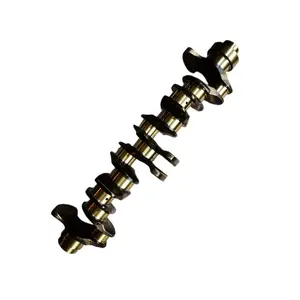Understanding Crankshaft Prices
The crankshaft is an essential component in the mechanical engineering realm, playing a pivotal role in converting linear piston motion into rotational motion. This process is crucial for powering various types of machinery, including motor vehicles and construction equipment. When exploring crankshaft prices, it's important to consider the intricate manufacturing process and the materials used, which directly influence the cost and performance of these components.
Types and Applications of Crankshafts
Crankshafts are utilized across a diverse array of applications, from the heart of a vehicle's engine to the core of heavy-duty construction machinery. The type of crankshaft required can vary based on the application, whether it's for a high-performance engine or for reliable daily operation in commercial vehicles. Factors such as the crankshaft pulley price and the crankshaft grinding cost also play a role in the selection process, as they affect the overall maintenance and longevity of the machinery.
Features and Materials
The materials used in crankshaft construction are selected for their durability and strength. Common materials include forged steel and cast iron, each offering a balance of toughness and resistance to wear. Advanced treatments and processes like balancing and grinding further refine the crankshaft, which can be reflected in the crankshaft grinding prices. The design and material composition are critical factors that ensure the crankshaft can withstand the stresses of operation without failure.
Advantages of Quality Crankshafts
Investing in a well-crafted crankshaft means benefiting from enhanced engine performance and efficiency. A quality crankshaft ensures smooth operation and longevity of the engine, reducing the need for frequent replacements. While the initial crankshaft prices may vary, the cost-effectiveness of a durable crankshaft becomes apparent in its reliable performance over time.
Sensors and Additional Components
Modern engines are equipped with various sensors to ensure optimal performance. The crankshaft position sensor price is a consideration for those needing precise engine timing and efficiency. Similarly, the cost of crankshaft sensor and the crank position sensor cost are important for budgeting maintenance and repairs. These sensors are integral to the engine's electronic system, providing critical data for engine management.
Choosing the Right Crankshaft
Selecting the appropriate crankshaft involves understanding the specific needs of your machinery and the operational demands it faces. Considerations such as the crankshaft balancing cost and the crankshaft seal price should be weighed against the benefits of reduced vibration and potential oil leaks. It's essential to assess these factors to ensure that the crankshaft provides the best value and performance for its intended application.









































 浙公网安备 33010002000092号
浙公网安备 33010002000092号 浙B2-20120091-4
浙B2-20120091-4